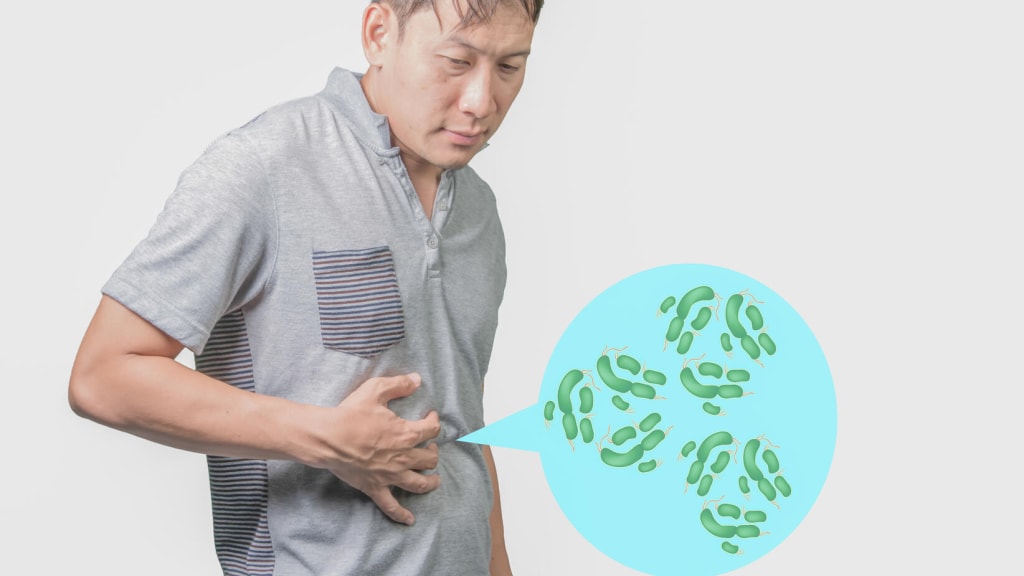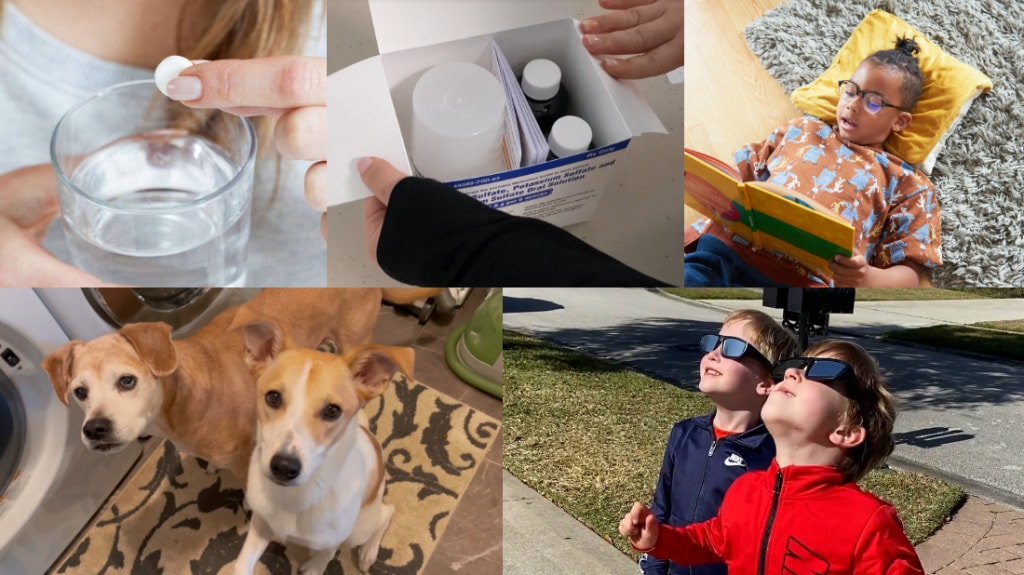Diagnosis
Salmonella infection is usually diagnosed based on signs and symptoms.
Salmonella infection can be detected by testing a stool sample. However, most people have recovered from their symptoms by the time the test results return.
If your health care provider suspects that you have a salmonella infection in your bloodstream, testing a sample of your blood for the bacteria may be needed.
Treatment
Most healthy people recover within a few days to a week without specific treatment. Preventing dehydration with adequate fluid intake can help you recover.
Treating dehydration
Because salmonella infection can cause dehydration, treatment focuses on replacing lost fluids and electrolytes — minerals that balance the amount of water in the body.
If dehydration is severe, emergency room care or hospitalization may be needed so that fluids can be delivered directly into a vein (intravenous).
Medications
In addition to advising you to drink plenty of fluids, your health care provider may recommend:
- Anti-diarrheals. Medications such as loperamide (Imodium A-D) can help relieve cramping from diarrhea. However, they may also prolong the diarrhea associated with salmonella infection.
-
Antibiotics. Your health care provider may prescribe antibiotics to kill the bacteria. These are usually given if your provider suspects that salmonella bacteria have entered your bloodstream, your infection is severe or you have a weakened immune system.
Antibiotics are not helpful in most cases of salmonella infection. In fact, antibiotics may extend the period in which you carry the bacteria and can infect others. They can also increase your risk of getting infected again (relapse).
Self care
Even if you don't need medical attention for your salmonella infection, you need to take care not to become dehydrated, a common concern with diarrhea and vomiting.
- Most adults with mild to moderate dehydration from diarrhea, vomiting or fever can improve their condition by drinking more water or other liquids. Diarrhea may be worsened by full-strength fruit juice and soft drinks.
- For infants and children who have become dehydrated from diarrhea, vomiting or fever, use oral rehydration solutions that you can buy without a prescription. These solutions contain water and salts in specific proportions to replenish both fluids and electrolytes.
Preparing for your appointment
If you make an appointment with your health care provider, here's some information to help you get ready.
You may want to bring a family member or friend along, if possible. Someone who goes with you may remember information you missed or forgot.
What you can do
Before your appointment:
- Find out about any pre-appointment restrictions. When you make the appointment, ask if there's anything you need to do in advance, such as restrict your diet.
- Make a list of your symptoms, including any that may seem unrelated to the reason you scheduled the appointment.
- Make a list of key personal information, including major stresses, recent life changes or recent travel.
- Make a list of all medications, vitamins, herbs or supplements you're taking, and the dosages.
- Make a list of questions to ask your health care provider.
Some basic questions to ask include:
- What is likely causing my symptoms?
- Other than the most likely cause, what are other possible causes for my symptoms?
- What tests do I need?
- What is the best course of action?
- What are alternatives to the primary approach you're suggesting?
- I have other health conditions. How can I best manage them together?
- Are there any restrictions I need to follow?
- Should I see a specialist?
- If medication is prescribed, is there a generic alternative?
Don't hesitate to ask any other questions.
What to expect from your doctor
Your health care provider will need to know:
- When the illness began
- The frequency of the vomiting or diarrhea
- Whether the vomit or stool contains visible bile, mucus or blood
- If you have a fever
- If you've recently traveled outside the country
Being prepared to answer questions will help you make the most of your appointment time.


